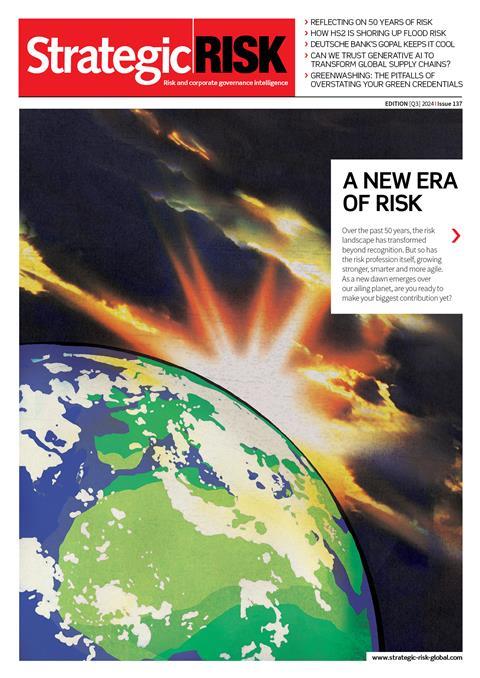John Burbedge gives a personal view of events that may have coloured risk management thinking during the past year.
In a survey for the turn of the millennium, members of the Association of Insurance and Risk Managers (AIRMIC) highlighted emergmc 21st century risks. How accurate have their predictions been to date? Very accurate, if events in 2000 are any guide.
Stress was seen as the most serious emerging risk of the 21st century. Another major concern was the growing threat of litigation within a burgeoning compensation culture. A number of high profile cases - often combining both elements - have confirmed that these fears are well founded. The October floods, when large areas of England lay under several feet of water, brought home the reality of another of the top emerging risks - climate change and extreme weather conditions.
In the survey, almost 90% of risk managers felt that stress would increase as a risk factor for their organisations. Within days of the findings being published, a former Worcestershire County Council worker was awarded £203,000 for the stress he allegedly suffered as warden of a travellers' campsite. Shortly afterwards, the Association of Local Authority Risk Managers (ALARM) published the results of its own survey. It warned that recent big awards to public sector employees claiming compensation for stress-related illnesses underlined stress at work as the most serious emerging risk.
Figures from the conciliation service ACAS also revealed that the number of claims by employees had increased by 32% in a year. The trend had been fuelled by the growth of advertising by "no win, no fee" companies offering to pursue compensation claims.
The Institute of Occupational Safety and Health (IOSH) and AIRMIC demonstrated how seriously they were taking these developments by organising a one-day conference in London in July. "Stress - the emerging risk" which outlined ways to identify and manage stress.
E-commerce was the second most important emerging risk, according to the AIRMIC survey. In 2000, the prediction came true when booming dot-coin activity and wildly rocketing tech stocks was followed by a reversal which saw some share values down by70%.
A further risk considered likely to increase in significance was loss of reputation through mergers and acquisitions (M&As) High-profile M&As announced this year, such as those involving CGU and Norwich Union, Vodaphone and Mannesmann, and Barclays Bank and the Woolwich, are unlikely to lessen risk managers' concerns. The performance of many merged or acquired companies during the year continued to give grounds for doubt ' that this was the best way to enhance shareholder value; or that the managements concerned understood the risks, especially the cultural risks, clearly enough.
There were a number of incidents involving reputational risk, regarded as the most serious current risk by AIRMIC members. Public opinion was outraged by the High Street banks' attempts to charge for cash machine transactions, and hundreds of Barclays Bank customers voted with their feet when the bank sullied its image by closing dozens of small branches on the same day.
The threat posed by pollution, to both businesses and society in general, featured in the top ten of both emerging and existing risks. The "polluter pays" legislation introduced earlier this year will force risk managers and their employers to be ever more vigilant.
--
John Burbedge is an account director with Stuart Hyslop Editorial Services which handles press and public relations on behalf of AIRMIC.

















